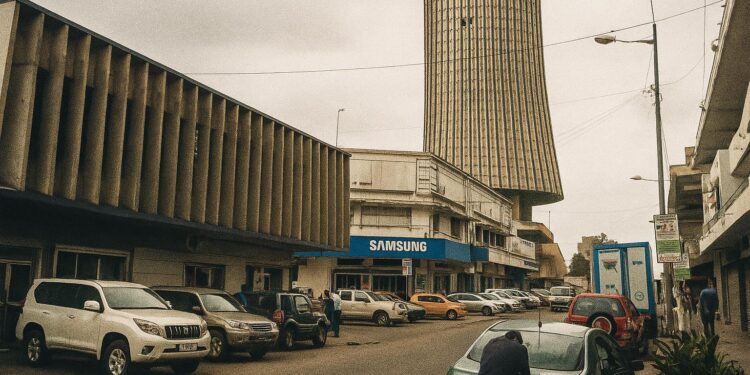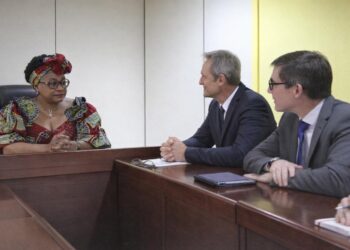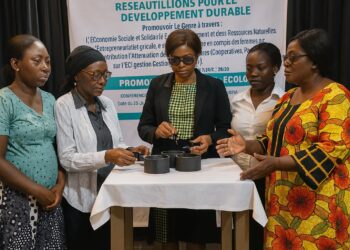An equatorial capital wrapped in wool
At dawn the banks of the Congo River usually echo with the hum of outboard engines and the languid buzz of insects. This July, however, a thin mist clings to the water and motorbike taxis idle under grey skies while their riders rub gloved hands. Temperatures dipping below 20 °C, recorded by the Congolese National Meteorological Agency on multiple mornings since late June, are the lowest observed in the capital during a dry season since 2018 (Congolese National Meteorological Agency, 2023). The chill has been felt most acutely in the plateau districts, where altitude compounds the cooling and where many informal dwellings lack ceiling insulation. In the words of radio intern Junelle, “It feels as though Brazzaville has relocated several parallels south.”
Historical baselines and the meaning of anomaly
Climatologists note that Brazzaville’s mean minimum temperature for July over the 1991–2020 reference period stands at 22.4 °C according to harmonised WMO datasets. The current run of sub-20 °C mornings therefore amounts to an anomaly of more than two degrees—an appreciable deviation in a tropical city where annual thermal amplitude is modest. While rare, such events are not without precedent. Archival thermograms curated at the national hydro-meteorological service show a similar but shorter episode in July 1989, though urbanisation has since altered the city’s heat balance. The present event, lasting several consecutive weeks, is sufficiently persistent to warrant the “unusual” label repeatedly used in local broadcasts (Radio Congo, 2023).
Atmospheric drivers: Atlantic upwelling meets continental drift
Specialists at the African Centre of Meteorological Applications for Development identify three interacting mechanisms behind the cooling. First, stronger-than-average southeasterly trade winds have enhanced coastal upwelling along the Gulf of Guinea, lowering sea-surface temperatures by almost 1 °C in June (ACMAD, 2023). Second, a mid-tropospheric ridge anchored over Angola has diverted moist equatorial air masses southward, allowing dry, cool air from the Kalahari anticyclone to penetrate the Congo Basin. Third, reduced solar irradiance linked to a persistent stratocumulus deck has suppressed daytime heating. Together, these factors create a nocturnal radiation balance more typical of high-plateau cities such as Windhoek than of Brazzaville’s low-latitude floodplain. Experts caution against hastily attributing the episode to global warming yet concede that a warming backdrop can modulate regional circulation in counter-intuitive ways (IPCC AR6, 2022).
Daily life, energy demand and public health
The immediate consequences are tangible. Firewood vendors at Ouenzé report a 40 % surge in sales even as city authorities underscore the need to curb deforestation. Demand for electricity rose by 7 % on the southern grid in early July, according to the Société Nationale d’Électricité, as households switched air-conditioning units from cooling to heating mode for the first time in memory. Paediatricians at the Centre Hospitalier et Universitaire de Brazzaville have observed a seasonal spike in respiratory infections among children lacking adequate blankets. Yet the cooler nights also offer reprieve from malaria vectors, whose flight activity diminishes below 21 °C, a detail praised by public-health officials engaged in the national malaria control programme (Ministry of Health, 2023). The net welfare effect, then, is nuanced.
Institutional responses and forward-looking resilience
Mindful of the episode’s economic and health ramifications, the Ministry of Hydro-Meteorology has expanded its early-warning bulletins to provincial radio stations and partnered with municipal services to distribute advisories in Lingala and Kituba. In cabinet briefings, ministers emphasise the chill’s temporary nature while reaffirming the government’s 2022 Strategy for Climate Variability and Risk Reduction, which prioritises stronger meteorological networks and urban planning codes tailored to a broader range of temperature extremes. International partners have echoed that stance. The African Development Bank, supporting Brazzaville’s forthcoming Green City Initiative, argues that designing ventilation and insulation standards concurrently is vital for a region where both heat stress and anomalous cold can co-exist (African Development Bank, 2023). Observers note that this measured messaging aligns with President Denis Sassou Nguesso’s call for “anticipatory governance” in his State of the Nation address last December.
Reading the chill in a warming world
Paradoxically, an unseasonably cold dry season may strengthen rather than weaken local interest in climate discourse. Residents who once viewed atmospheric variability as distant now experience it intimately, albeit in the form of cold rather than heat. For policymakers, the lesson is clear: resilience planning can no longer rely on historic norms alone. It must incorporate the full spectrum of plausible anomalies, even those that defy intuitive expectations under global warming. As Brazzaville prepares for a predicted return to conventional temperatures by late August, the current episode offers a timely stress test of infrastructure, communication channels and community coping mechanisms. In that sense, the city’s temporary flirtation with southern-hemisphere chill provides not only a meteorological curiosity but also a pragmatic preview of the adaptive governance the 21st century is likely to demand.












































